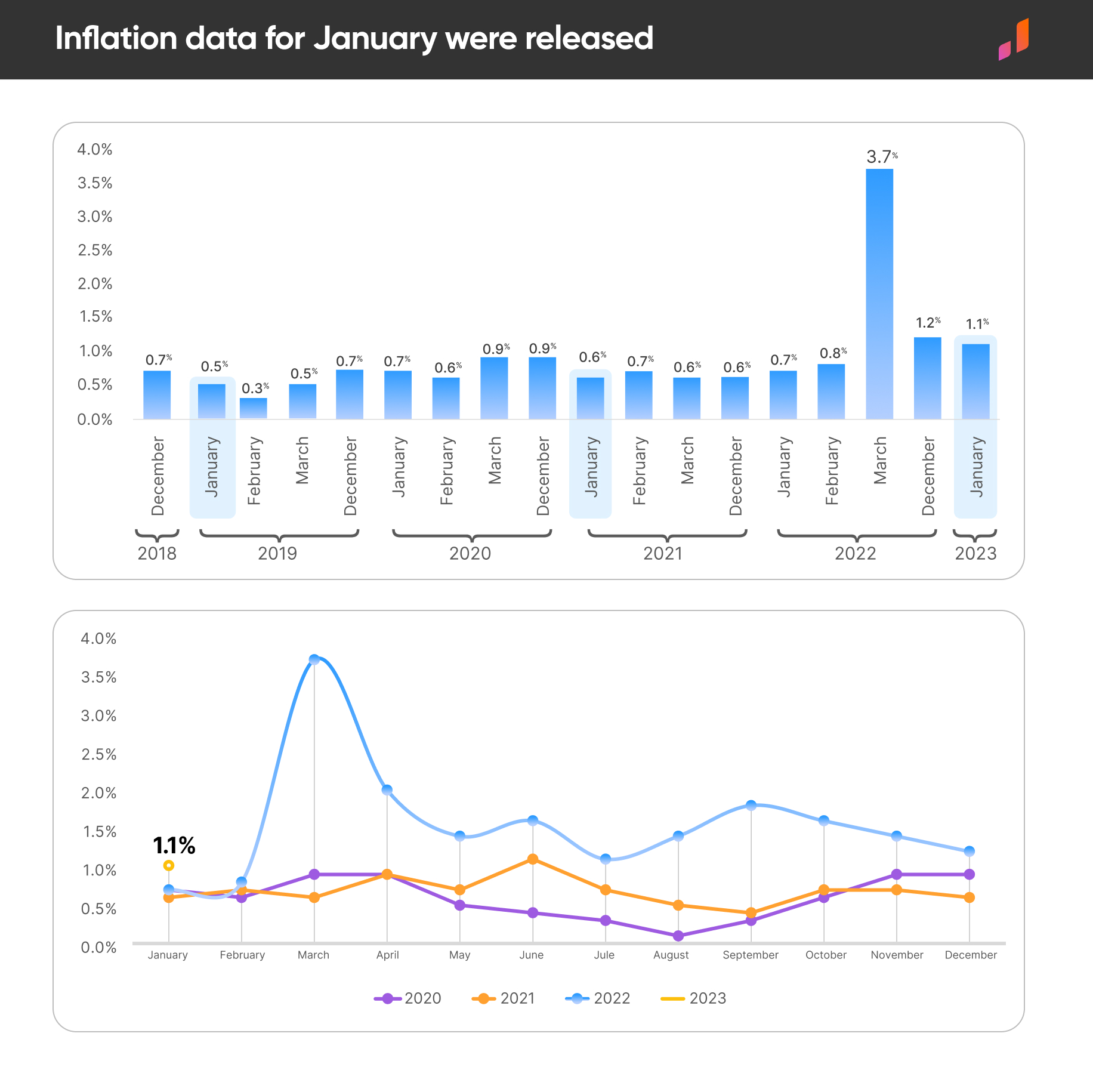In January, the Consumer Price Index increased by 1.1%, while the annual growth was 20.7%.
Prices for food products increased the most (+25.7%), non-food products and market services increased by 20.2% and 14.2%, respectively.
Despite the slowdown in price growth (+1.2% in December, 1.4% in November), the current decline mostly reflects the seasonally low economic activity in January.
The observed slowdown of the inflation growth rate should not yet be accepted as a sign of the inflationary environment cooling and inflationary processes stabilization. The continued acceleration of core inflation and inflation expectations are signs of a long-term trend of higher prices and a high inflation.
Came into force from the beginning of the year revision of the main calculated indicators may give an additional inflationary impulse due to an increase in the level of household nominal income. We note two channels of pro-inflationary impact:
- business representatives will try to maintain their profit margin by shifting the costs to wages and their customers;
- the population whose income has increased due to the revision of the calculated indicators will increase their consumer demand due to expectations of further and more significant price increases.
We expect further price increases. This is mainly due to internal structural factors such as high inflation expectations, an additional impulse from the revision of the minimum wage and the widespread practice of indexing wages at the beginning of the year, price hikes for imported goods due to their potentially less favourable transporting conditions to the end-user.

 Айжан Алибекова, Сунгат Рысбек
Айжан Алибекова, Сунгат Рысбек
